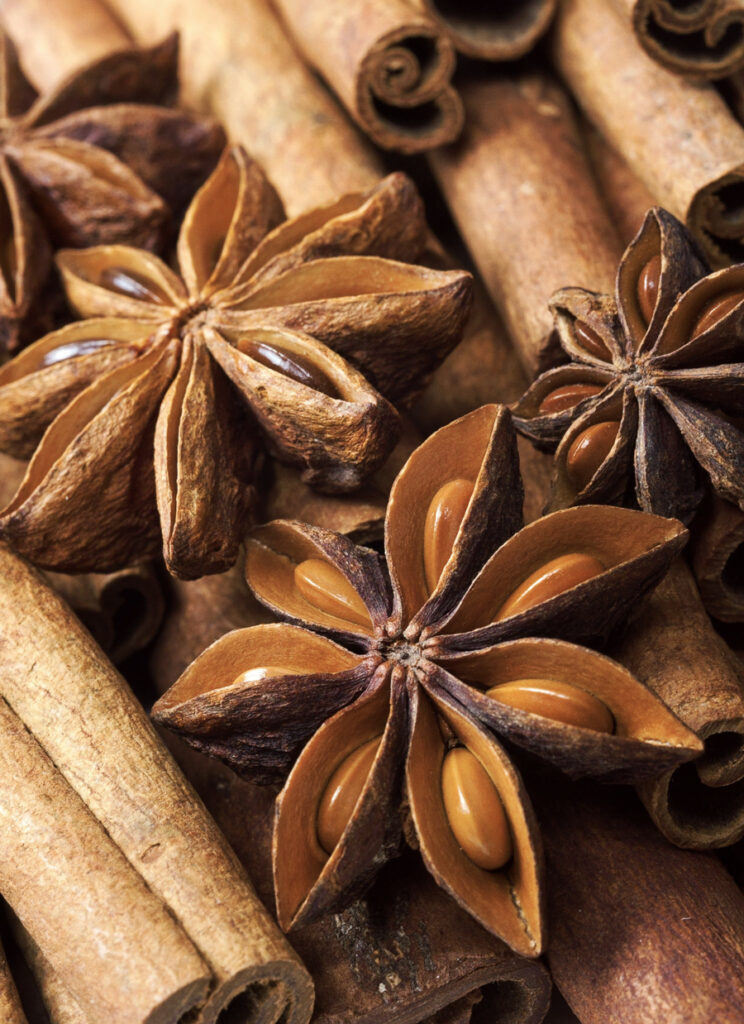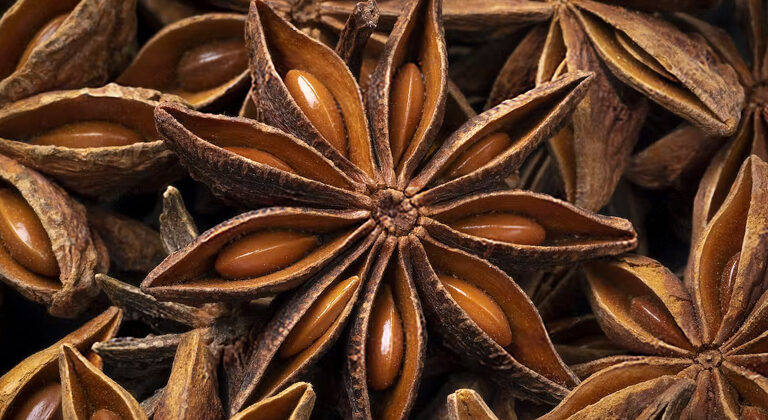Star anise have been used for centuries for their aromatic flavor and medicinal properties. Although star anise are often confused with seeds, they are, in fact, small fruits that come from the star anise plant, Illicium verum. This member of the Apiaceae family is native to the eastern Mediterranean region and Southwest Asia but is now widely cultivated in other parts of the world, including Europe, North Africa, and the Americas.
Star anise have a sweet, licorice-like flavor and are used in many cuisines worldwide. They are used in baked goods, soups, stews, teas, and alcoholic beverages. They are also used for their numerous health benefits, including digestion, respiratory health, and antioxidant activity.
Traditional Medicinal Uses of Star Anise
Traditional Chinese medicine and Ayurveda also incorporate star anise into their remedies.
Star anise contain a compound called anethole, which is responsible for their unique aroma and flavor. Anethole has antibacterial and antifungal properties and is also used as a flavoring agent in many products, including toothpaste, mouthwash, and soaps.
Star Anise as a Digestive Aid
Star anise are known for their carminative properties, which means they help relieve bloating, gas, and other digestive discomforts. Star anise are also used to treat other digestive issues such as acid reflux, indigestion, and constipation.
The essential oils found in star anise have been shown to have anti-inflammatory properties, which can help reduce inflammation in the digestive tract. Star anise can also help stimulate the production of digestive enzymes, which can aid in the breakdown of food and promote better absorption of nutrients.
Star Anise for Respiratory Health
Star anise have also been used for respiratory health for centuries. They are a natural expectorant, which means they help expel phlegm and mucus from the respiratory system. Star anise can help relieve coughs, bronchitis, and other respiratory conditions.
Star anise contain compounds that help soothe the throat and reduce inflammation in the airways. Star anise tea is a popular remedy for coughs and colds, and it is often used in combination with other herbs, such as thyme and licorice root.
Antioxidant Properties of Star Anise
Star anise are rich in antioxidants, which help protect the body against free radicals. Free radicals are unstable molecules that can damage cells and contribute to aging and chronic disease. Antioxidants neutralize free radicals and prevent them from causing damage.
Star anise contain several types of antioxidants, including flavonoids, phenolic acids, and terpenoids. These antioxidants have been shown to have anti-inflammatory and anticancer properties.
Other Health Benefits of Star Anise
Star anise are also a good source of vitamins and minerals, including iron, magnesium, and calcium. These nutrients are essential for maintaining healthy bones, muscles, and blood.
Star anise have been used as a natural insect repellent. Placing a sachet of star anise in a closet or drawer can help repel moths and other pests. Star anise have also been used to repel lice and fleas.
Conclusion
Star anise are small but mighty powerhouses that offer many health benefits. They are a natural digestive aid, respiratory health promoter, and antioxidant. Star anise are also a good source of vitamins and minerals and have been used for centuries in traditional medicine. Whether used in cooking, teas, or consumed as a supplement, star anise are a versatile ingredient that can provide many benefits for the body. However, like with any natural remedy, it is important to talk to a healthcare provider before using star anise for medicinal purposes, especially if you are pregnant, breastfeeding, or have a medical condition. Overall, star anise are a flavorful and healthy addition to any diet or wellness routine.


